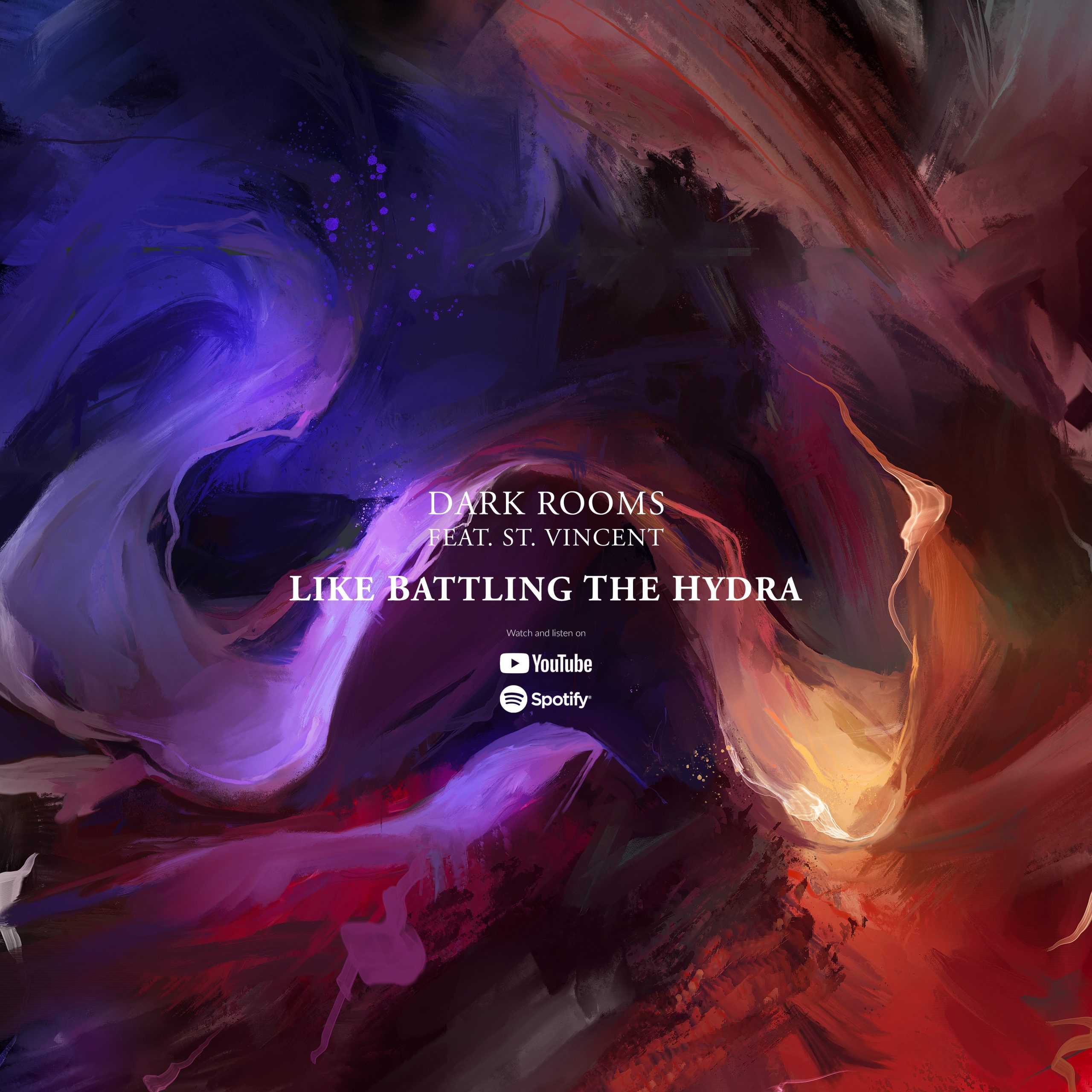Case study
F███ YEAH or How I tried to fix mindfulness calendar apps by sporadically swearing and not wasting your time.
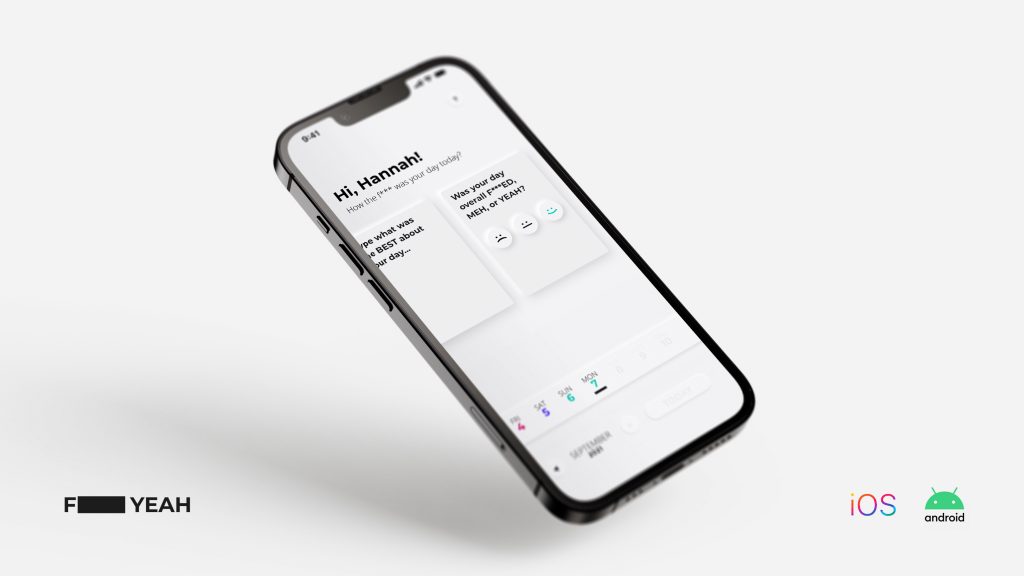
Introduction
As a designer working on the future of digital psychotherapy, I became interested in mindfulness apps and found that they often took up a lot of time. In response, I decided to create a no-time-needed app that cut through the complexity of mindfulness apps. I concepted and developed a testable version of the app in about 7 months as an on-the-side passion project.

Challenges
One of the main challenges I faced was my lack of coding proficiency. Using Construct, a 2D game engine, was not an ideal choice, but I decided it would be the quickest way for me to develop the app on my own.
Additionally, I faced the challenge of creating an app that would be truly easy and quick to use, while still providing the benefits of mindfulness.
To overcome the common issue of users abandoning mindfulness apps or diaries due to the time required, I conducted initial user research and focused on creating a streamlined experience that could be easily incorporated into daily routines. This allowed users to quickly refocus their thoughts with just one minute a day, while still providing valuable insights for long-term personal growth.
To ensure the security and privacy of user data, I avoiding the responsibility of storing their personal data on my servers by developing the app as a self-hosted web app that utilized local storage to store information. Also implementing a full account and login system with personal data storage on my own servers would have been disproportionate and beyond my capabilities.
The main idea
F███ YEAH is a minimalist mindfulness app designed for busy individuals who want to take a quick break and refocus their thoughts by simply reflecting on the best and worst parts of their day and determining whether it was overall good or bad. The goal was to create a simple, no-frills app that could be used for just one minute a day, making it easy to incorporate into a daily routine, to provide a quick mental reset and enable long-term insights.
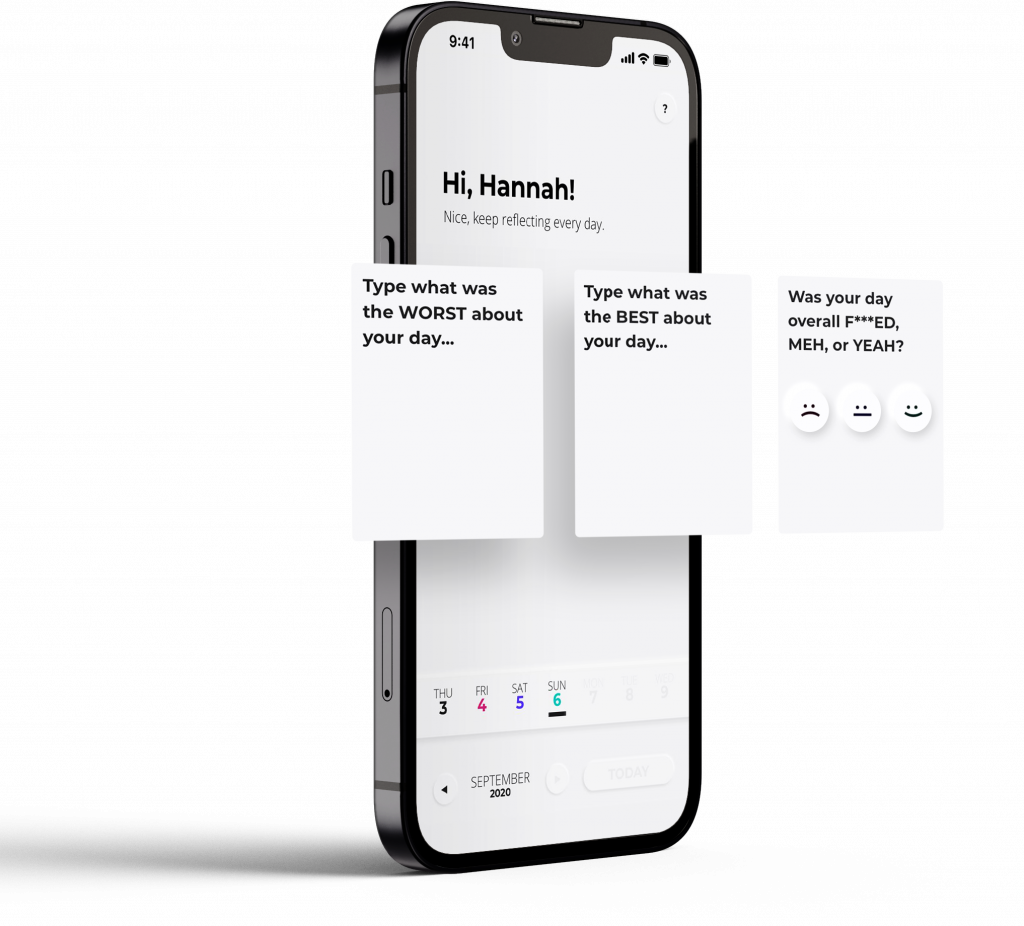
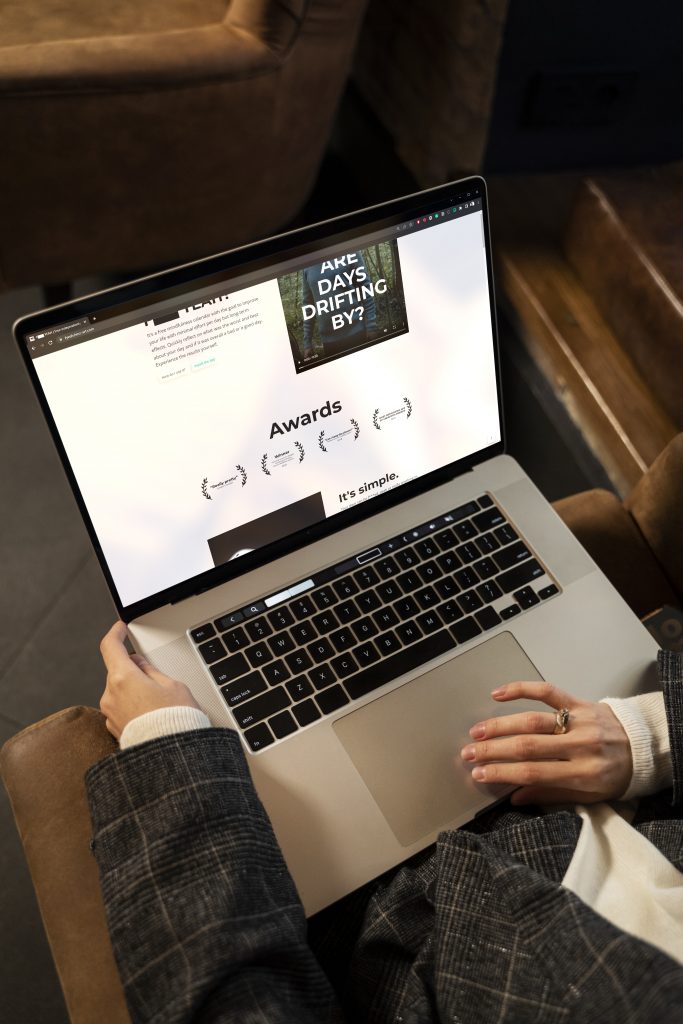
Copy writing
To appeal to my target user group of people who are fed up with yet another mindfulness or meditation app, I used a cheeky and playful tone in my copywriting. This approach created a perfect pairing between the app’s features and the marketing message, as both emphasized a quick and effective way to incorporate mindfulness into daily life without taking up too much time. Overall, this approach has been well received and has helped the app stand out.
User testing
During the development process, I conducted several rounds of user testing to gather feedback and refine the app. Testers found the app to be incredibly easy to use, with many stating that it was the first mindfulness app they had ever stuck with. Feedback also led me to make major design tweaks to the installation and onboarding flow, a huge amount of quality of life features and minor improvements, such as rubber banding UI elements, smooth scrolling, readability improvements and more. Big requested features got added such as an export and delete complete storage feature.
The website
The website features a clean and modern aesthetic with bold typography and vibrant colors that complement the app’s branding. The goal was to create a simple one-page website that is as straight to the point as the app’s concept.
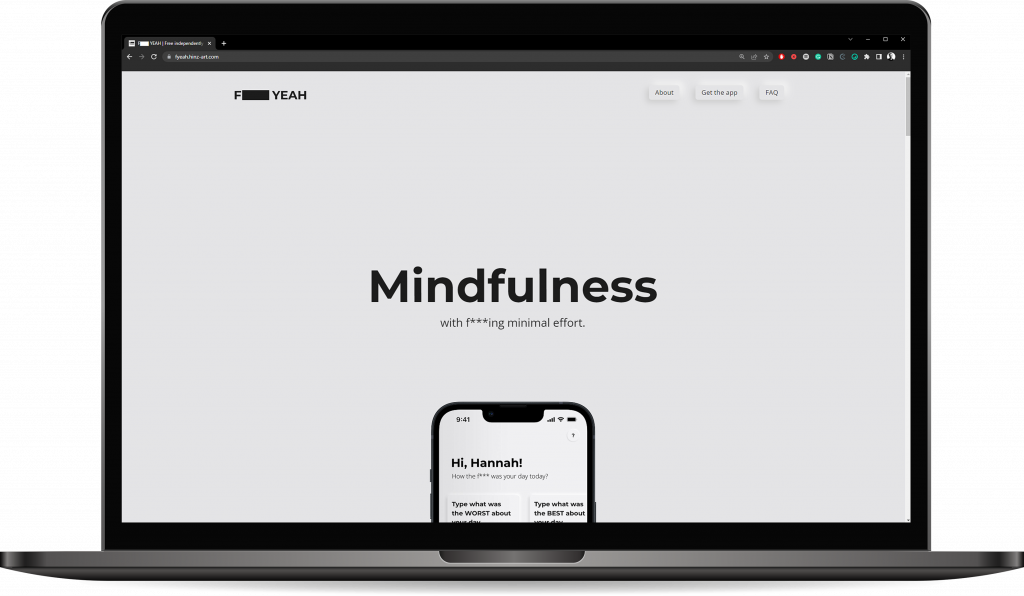

The trailer
I created a low budget 30 seconds teaser trailer for the app, using free stock footage, a bought phone mockup video template, type in motion and music that fit the cheeky copywriting tone of the app.

